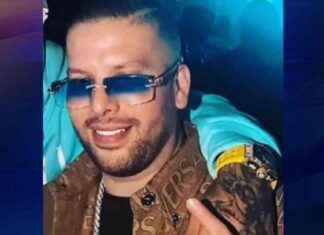In Vancouver, a postcard city, like a small San Francisco, it rains a lot. Much more than anyone who doesn’t live here or is a regular visitor could imagine. And in Vancouver – as in the rest of Canada – Prime Minister Justin Trudeau is showered with criticism as if he were in the middle of a tropical storm, and his popularity has plummeted after eight years in power. Much more than you might think seen from the outside.
Although internationally he still has a certain layer of veneer left on him, and is seen as one of the most modern and glamorous Western leaders, in Canada the trudeaumania is over. Fulfilling the implicit promise of recovering the glorious era of progressivism (1968-1984) that symbolized his father (Pierre Trudeau) was an almost impossible mission, and it also seems to be to emulate his 16 years in power. He has half and it is already getting long. Very long.
The liberal (center-left) premier, a charismatic, empathetic type, with a youthful appearance at 51, has led since 2015 on the foundations of culture and identity, as an environmentalist, a staunch defender of LGBTQ claims. So much so that his Twitter account is illustrated by the symbol of two spirits, which in the indigenous tradition represents those who are neither male nor female, but who are protected by the soul of both.
From day one, he has had enemies on the right. But now he also has them in the broad segment of Canadians not especially politicized, susceptible to changing sides. Even some of his staunchest supporters, younger voters, are disappointed. His was a cult of personality cultivated on social networks, and the cult of personality can crumble like a castle of sand (the separation from his wife, Sophie, with whom he offered the image of the perfect family, has not helped precisely).
Trudeau is criticized, from the right, for everything imaginable. The massive arrival of legal immigrants (700,000 last year, almost as many as in the United States); protectionism, since only permanent residents can buy homes; the financial sector: Air Canada and the telephone companies enjoy significant state aid, and Kleenex has just left the country complaining about high taxes; regulations and bureaucratic obstacles; the authoritarian steps he took to shut down truckers (some carrying swastikas and Confederate flags) marching on the Ottawa Parliament House to protest pandemic restrictions; everything related to gender equality, of course; the legalization of marijuana, and the decriminalization in Vancouver of heroin, cocaine and fentanyl (to suppress the black market for drugs and, in theory, improve the quality of life in a city with many dependents); the facilities for euthanasia, which is opposed by the Catholic Church and groups of doctors and nurses, concerned that people with mental problems decide to end their lives; in Alberta, the most energy-rich province (equivalent to Texas), the imposition of a carbon tax and policies to discourage the oil and gas industries; the scarcity, in his opinion, of the Defense budget (1.22% of GDP), lower than that of Slovenia, despite the size of the country and its strategic importance in the Arctic, Pacific and North Atlantic regions; the scant military and financial aid to Ukraine, ignoring the demographic weight of that community in the country; the coldness with Carlos III (a majority is in favor of breaking ties with the British monarchy and becoming the Republic of Canada).
From the left, the censorship is more lukewarm and refers more to broken promises, to the fact that the facts do not fully respond to the redistributive, environmentalist and equality rhetoric, and to his peculiar management style, with little attention to detail , hyperactive at times, other times very relaxed. The euphoria of his early years has faded.
Tip spikes. And what everyone agrees on – and the main factor behind Trudeau’s wear and tear – is how the cost of living, and especially housing, has skyrocketed to levels in London, New York and Los Angeles. The average price of a flat in Canada is half a million euros, eleven times the net income of a typical family, something totally unaffordable. In Vancouver, with rising interest rates, a mortgage eats up the entire salary of a middle-class professional. And the rents, also through the roof. To which the Government only responds that the problem “is not a federal responsibility, but in any case a provincial one.”
The Canadian economy did not contract as much as others in the G-7 during the pandemic (5.1%, compared with 6.1% in the euro area and 11% in the United Kingdom), but the growth forecasts of the Monetary Fund International for the next decade are a modest 1.7%. The strategy to grow is to increase the population with the arrival of immigrants, taking advantage of the fact that the country has the largest mass of land on the planet after Russia, and only 40 million inhabitants.
Justin Trudeau has won three elections, the last ones narrowly called early during the pandemic, and now needs the support of the New Democrats (who are to the left of his Liberal Party). The polls place him ten points behind some conservatives who have regained their energy at the hands of Pierre Polievre, younger than him, with a reformist and moderately libertarian agenda, and the guarantee of “ending waste and fiscal incontinence”. . The next ones are two years from now, and for the first time it doesn’t look like he’s going to be the favorite, if he shows up at all.
His father, Pierre Trudeau, put Canada on the international map, calmed Quebec’s separatist demands by creating a bilingual society, legalized homosexuality and abortion, abolished the death penalty, and liberalized divorce. It doesn’t look like history is going to be so generous to Justin.








